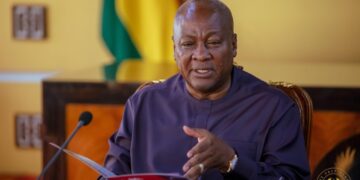Michael Owusu Addo, better known by his stage name Sarkodie, is a well-known hip-hop singer. He appeared in the Supreme Court today to contest an FDA regulation that forbids the use of celebrities and other well-known figures in advertising for alcoholic beverages.
Mark Darlington Osae, manager of hip-hop artists Skrewfaze and Reggie “N” Bollie, filed the lawsuit.
According to the lawsuit, the FDA guidance breached the right against discrimination protected by Article 17 of the 1992 Constitution, making it unlawful.
The Constitution’s Article 17(1) guarantees everyone’s equality before the law, while Article 17(2) prohibits discrimination based on a person’s gender, race, color, ethnic origin, religion, creed, or social or economic standing.
Postponement
The case was postponed until January 17 and was scheduled to be heard by a seven-member panel of the supreme court today.
Sarkodie was in court with Bobby Banson, the plaintiff’s attorney.
The FDA released Guidelines for the Advertisement of Foods, Rule 3.2.10, on February 1, 2016.
It says that “No well-known personality or professional shall be used in alcoholic beverage advertising” .
The FDA said that the rule was required to prevent minors from developing an alcohol addiction as a result of celebrity influence.
Mr. Osae, who is also the Chairman and Co-Founder of Ghana Music Alliance, took the Attorney General and the FDA to the highest court in November of last year.
Read Also:Putting Grammy logo on my promotional flyer got me disqualified- MOGmusic
In his request, a declaration is sought that “Guideline 3.2.10 of the Guidelines for the Advertisement of Foods, published by the First Defendant on February 1, 2016, which provides that “No well-known personality or professional shall be used in alcoholic beverage advertising,” is discriminatory, inconsistent with and in violation of articles 17(1) and 17(2) of the 1992 Constitution, and therefore unconstitutional, on a true and proper interpretation of Article 17(1) and (2) which guarantee equality before the law and prohibit discrimination against persons on grounds of social or economic status, occupation, among others.
A declaration that “on a true and proper interpretation of Article 17(1) and (2), Guidelines for the Advertisement of Foods, published by the First Defendant on 1st February 2016, prohibiting well-known personalities and professionals from advertising alcoholic products is inconsistent with and in contravention of articles 17(1) and 17 (2) of the 1992 Constitution, which guarantee equality before the law and prohibit discrimination against persons on grounds of social or economic status, occupation, among other things, and consequently null, void, and unenforceable” is another request he is making of the Supreme Court. That ruling is also requested.
Additionally, he is asking for “an order striking down Guidelines for the Advertisement of foods, published by the First Defendant on February 1, 2016, as being nullity and inconsistent with the letter and spirit of the 1992 Constitution.”
SOURCE:GRAPHICONLINE


























